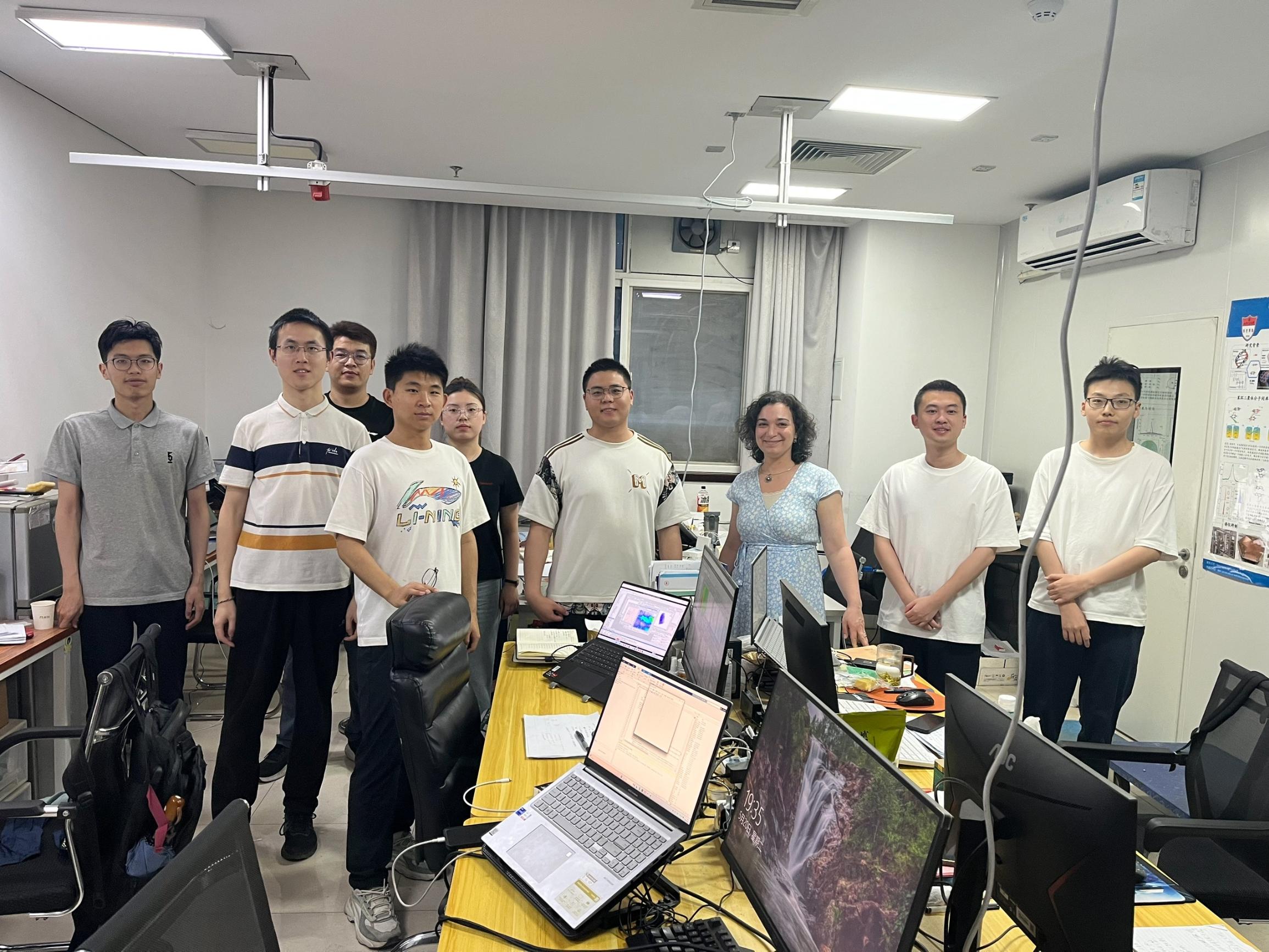Anna Skitnevskaya, Senior Researcher at ISU Laboratory of Quantum Chemical Modeling of Molecular Systems (LQCMMS), Candidate of Chemical Sciences, has returned from another trip to Xi’an, China. She was invited to discuss results and future work plans within the framework of a joint international project. In addition, Mrs. Skitnevskaya gave a report at an international scientific conference in Shanghai.
We have previously reported on this research direction of ISU chemists: the LQCMMS has been studying Intermolecular Coulombic Decay (ICD) for several years in collaboration with foreign colleagues. The work involves active interaction with Chinese experimental scientists, who value the strong theoretical foundation of the researchers of ISU. Recently, A.E. Favorsky Irkutsk Institute of Chemistry of the Siberian Branch of the Russian Academy of Sciences has also joined the informal collaboration, recognizing the high significance of such research.
Anna Skitnevskaya about her recent trip:
This was my second trip to discuss results with our colleagues in China. I consider our collaboration to be very productive. We already have seven joint publications, including those in Nature Physics and Nature Communications. Most of the works are international, involving co-authors from Germany, the Czech Republic and Japan.
The research that we and our colleagues are conducting is related to the study of ultrafast processes in molecular systems initiated by radiation. We are finding out what happens in them at the quantum level under the influence of high energies, how these systems react and what processes are triggered.
Such studies require unconventional approaches from both the experimental and theoretical sides. The theoretical approaches that we are developing in collaboration with different groups in different countries have proven to be very effective in describing fast processes in the so-called highly excited molecular states that are formed under irradiation.
I consider international and interdisciplinary collaboration, as well as collaboration between theorists and experimentalists, to be very important because those questions of physics, chemistry, and the structure of matter that have not yet been investigated require complex approaches, involvement of a good experimental base, application of complex theoretical methods, computer equipment and software necessary for the analysis and generalization of both theoretical and experimental data. Joint work of different specialists is needed in order to really explain some new phenomena. We can say that this interaction itself is a separate science as well.
Our colleagues (experimentalists in China and in other countries with whom we have worked before) use a reaction microscope, which allows us to record fragments of the decay of molecular complexes under the action of ionizing radiation. As far as I know, there is no equipment like this in Russia today, but I would very much like to see them appear.
We are trying to talk about our work in order to promote this topic within the country. I hope that such equipment will eventually appear here as well. This will also require very serious training, knowledge, experience and international collaboration.
It is also important that international conferences on femtosecond and attosecond spectroscopy, and on the study of ultrafast processes in atoms and molecules in general, are regularly organized in China with the participation of our colleagues.
When you present your results at conferences of such level with a large number of international participants, you receive very important feedback and understanding of what aspects of your research you need to pay attention to, what is really of interest to the colleagues in your community. You can also get valuable advice.
The reports of the participants represent the highest level of modern science and provide an excellent insight into current trends, revealing the new achievements. This is exceptionally important, given the sheer volume of scientific literature being published today. Within each field, there are specific, narrow areas. Only specialists in each particular area can truly convey and demonstrate which recent findings are key, what needs attention, or share information about something that isn’t published yet. After all, the release of significant, highly-rated publications can sometimes take one to two years. By the time they are published, you could say that the result was obtained relatively long ago. Therefore, it’s important to stay aware of current events, learning directly from colleagues about their work.
It’s always a pleasure to work and interact with leading research groups and participate in world-class conferences. It helps to keep up to your own standard and motivates you to make progress and move forward.
















